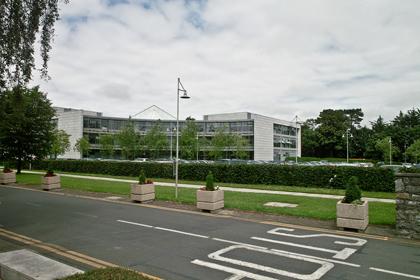BAI inquiry won't solve the problems with RTÉ

Given the scope of the Broadcasting Authority's powers, its investigation into RTÉ's libel of Fr Kevin Reynolds seems pointless. By Vincent Browne.
It is not at all clear what powers the Broadcasting Authority of Ireland has to institute an inquiry into how RTÉ managed to perpetrate the horrendous libel on the Mill Hill Missionaries priest, Kevin Reynolds.
Or how he was subjected to an ambush in a church car park after RTÉ had intruded on a First Communion service without notice or permission; how RTÉ then exacerbated the harm done to him in the manner it handled the libel proceedings; its delay in informing him that a paternity test had exonerated him; the failure of the RTÉ Authority to institute an immediate independent inquiry into what had happened with a commitment to publish in full the report of such an inquiry, once it realised how it had grotesquely defamed Kevin Reynolds; the initial indication that nobody would be held accountable for what had occurred, certainly to the point of resignation; and the manner in which the apology was recorded and broadcast.
Neither it is clear how the broadcasting authority is empowered to examine the culture within RTÉ that may have contributed to all this, including an apparently unhealthy obsession with ratings in the arena of current affairs broadcasting; the hubris that informed much of its dealings with Kevin Reynolds both before and after the libellous broadcast on 23 May last and, particularly, the manner in which the apology was handled.
For the legislation establishing the BAI (the Broadcasting Act 2009) provides for an investigation by the BAI only into whether broadcasts were conducted in a fair, balanced, objective and impartial manner, plus a few other matters that are irrelevant to the issues involved here.
It is blindingly clear that the Prime Time Investigates programme on Kevin Reynolds, right from its opening sequence, where it was titled “Mission to Prey” was unfair, unbalanced, unobjective and not impartial. Everyone now knows that. RTÉ acknowledged that in the series of apologies it broadcast. So what is the point of this BAI exercise?
We, the owners of RTÉ, are certainly entitled to know how all this came about, how the provision of €1 billion of public funds to RTÉ over the last seven years has failed to provide for checks and balances within it whereby such a gross abuse of its status as the public service broadcaster could have happened. Also how the authority, with the overall supervisory function in relation to all this, seems to have sat on its hands for months after they knew this debacle had occurred. But what authority does the BAI have to inquire into all this?
Clearly I have a conflict of interest here, working for a rival television station. That conflict of interest is compounded by knowing almost all of the people involved directly in this debacle – for whom I have a high regard. But I think the issues I raise about the suitability of an inquiry by or under the auspices of the BAI are valid and uninfected by that conflict of interest.
I think I have a good idea however of what happened. The initial mistake was in uncritically accepting the veracity of the supplied information, a mistake many of us have made in journalism. What is disturbing however is the checks and balances that one assumed applied in spades in RTÉ didn’t work and my guess is this happened for the following reason.
The senior executive involved in this, Ed Mulhall, head of news and current affairs, one of the most respected executives in the history of the station, was hugely distracted by events of the surrounding days – the programme was broadcast on 23 May, the visit of Queen Elizabeth occurred from 17 to 21 May, Garret FitzGerald’s funeral was on 22 May, Barack Obama’s visit was on the same day the programme went out.
There was pressure to get the programme to air because in the days before 23 May the planned programme was hyped in preprogramme advertisements and maybe there was nothing else in the can if the programme was pulled at the last minute. There may also have been an eye or two or three on ratings.
The exacerbation of the original harm by the subsequent conduct of RTÉ in the handling of the libel case seems also egregious. And then the apparent indifference of the RTÉ Authority once it became apparent, at least by 28 September, that a terrible injustice and abuse had occurred. All it seems to have done was to refuse the proffered resignation of Noel Curran, the director general, who characteristically, saw the need for accountability.
Pat Rabbitte needs to think again. An inquiry under the Commission of Investigation Act 2004 seems the most obvious agency. He should also think again about RTÉ dominance in the Irish media market and the illegal anti-competitive practices it has operated for years.
Image top: infomatique.
